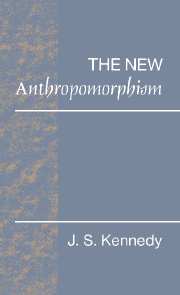Chapter 1
Published online by Cambridge University Press: 29 January 2010
Summary
People have always been very ready to believe that animals are like us in having feelings and purposes and acting upon them. Yet there has never been any direct evidence for this ancient anthropomorphic belief, and some three centuries ago René Descartes broke with tradition by arguing that animals were, in principle, machines. Their behaviour, he thought, could be explained straightforwardly by the material mechanisms inside them. Descartes thus sowed the seed of a materialist conception of animal behaviour. The seed fell on rather stony ground and took 200 years to germinate, but by the 1960s the majority of professional students of animal behaviour had rejected traditional anthropomorphism in favour of Descartes on this point. Keeton spelled out their position at that time:
“Almost all our words have some sort of human connotation, imply some sort of human motivation and purpose. But such motivation and purpose may have no relevance to the behaviour of other animals, and we must constantly guard against unwarranted attribution of human characteristics to other species. Anthropomorphic or teleological thinking has no place in a scientific study of animal behaviour… English (like all human languages), having been developed around human activities and human interpretations, inevitably reflects these, often with a strong cast of supernaturalism…. You are cautioned, therefore, to recognize the pitfalls inherent in any application of human-oriented language to the activities of other animals…”
(Keeton 1967, p. 452)- Type
- Chapter
- Information
- The New Anthropomorphism , pp. 1 - 8Publisher: Cambridge University PressPrint publication year: 1992



